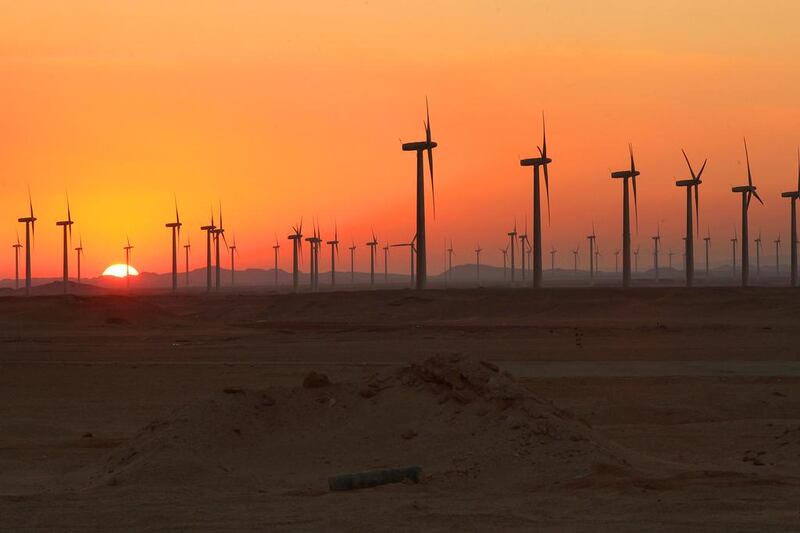A scramble to find billions of dollars needed for renewable power projects in Egypt could provide an opportunity for lenders operating in the country.
Michelle Davies, the head of clean energy at the UK-based law firm Eversheds, said that there was an “awakening” happening as investors and the Egyptian government realised that international development lenders – including the International Finance Corporation (IFC) and the European Bank for Reconstruction and Development (EBRD) – would be unable to provide all the necessary finance.
The IFC estimates that the amount of investment needed for Egypt’s renewable energy projects alone is between US$7 billion and $8bn.
The IFC declined to comment on how much money it would make available for investment in Egypt’s renewables sector, but a source close to the matter said that combined, the IFC and EBRD would supply up to half of the capital needed, amounting to between $3bn and $4bn.
“I think it is a real opportunity for local financiers,” said Bryanne Tait, the IFC’s senior operations officer.
A banker in Egypt said that the government was mandating lenders to provide syndicated loans to the energy sector.
This month, five banks – National Bank of Abu Dhabi, Lebanon’s Bank Audi, Egyptian Gulf Bank, Banque Misr and Banque Du Caire – reached an agreement on their shares of a $521 million facility for the country’s state-owned power company.
The IFC is working with several local lenders to help increase their understanding of financing renewable energy projects, which is a new area for them, Ms Tait said.
“The financing demand is likely going to be insatiable,” she said.
The government has set its renewable energy feed-in tariff in US dollars, but it will be paid in Egyptian pounds and investors are concerned over its convertibility amid a scarcity of foreign currency in the country.
Egypt has said it will guarantee the convertibility of 15 per cent of any amount paid at a fixed rate of 7.15 pounds to the dollar, and Ms Davies expects the finance ministry to make an announcement soon issuing a guarantee to cover “all or most” of any project debt issued.
However, even if that happens, she said, securing financing will continue to be a challenge.
“The debt will get there, but the equity won’t,” she said.
Companies that have already signed deals include the UAE-based Access Power, which expects to add to its $100 million worth of solar energy projects in the next few weeks.
Vahid Fotuhi, director of origination at Access, said that the company would rely on its shareholders to provide the equity side of any financing, but it plans to borrow the rest from international institutions, including the IFC.
After 70 companies pre-qualified for the work, only 10 have managed to complete all of the requirements to get initial paperwork signed, according to Mr Fotuhi. “Not everyone is on the same level and the first 20 that move forward will be the ones that benefit from a wider pool of additional financing,” he said. “We’re among the first 10, and we’ll continue pushing aggressively to secure the institutional financing.”
The signs are good that funding will be forthcoming. On Tuesday, a $500m 750-megawatt combined cycle gas turbine power plant was opened in the northern outskirts of Cairo funded by the Abu Dhabi Fund for Development, the Arab Fund for Economic and Social Development, the Islamic Development Bank, the Kuwaiti Fund for Arab Economic Development, the Opec Fund for International Development and the Saudi Fund for Development.
lgraves@thenational.ae
Follow The National's Business section on Twitter





